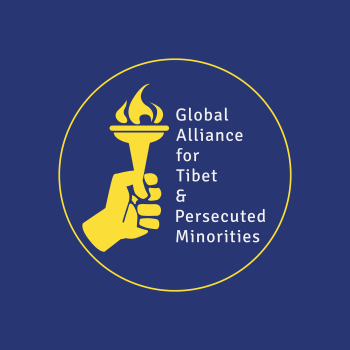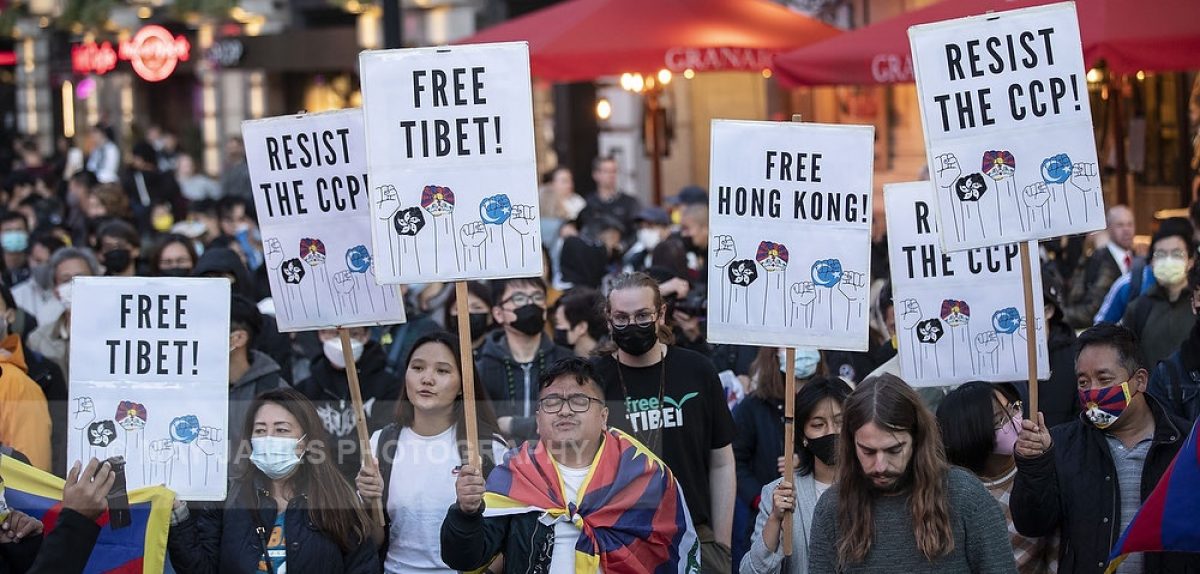A group of academic scholars of Tibetan Studies from around the world have called on the media to “consider context carefully before projecting a highly charged interpretation onto something about which they have little knowledge”.
Statement of Dalai Lama Incident
21 April 2023
We, the undersigned academic scholars of Tibetan Studies, express our dismay over recent media coverage of an exchange between Tenzin Gyatso, exiled fourteenth Dalai Lama of Tibet, and a young boy in India at a public event. This included an edited video of the exchange that was created to give the impression of sexual misconduct on the part of the Dalai Lama, cynically misusing the momentum of the #metoo movement for its own ends. But on the basis of watching a fuller video of the event, along with the representation of what happened by the boy himself as well as his mother, we are not seeing here an incident of sexual misconduct.
We urge news reporters to consider context carefully before projecting a highly charged interpretation onto something about which they have little knowledge. It is well known that the current Dalai Lama is physically playful with many of the people he meets, of all statuses and ages and genders, including when he embraced and tickled Bishop Desmond Tutu under the chin with humor and in friendship. We would also add that we have heard from a wide range of Tibetan specialists, colleagues, and friends that it is far from unusual for old folks in Tibetan societies to interact with children in many commonly-recognized joking ways, including as the Dalai Lama did. These are not incidents of sexual abuse.
Indeed there have been recent, and very troubling and painful, cases of Tibetan lamas committing sexual abuse, as has also occurred in other world religions repeatedly and for decades. We adamantly support the important work for justice and healing for children and other people who are the survivors of such abuse. But the current incident with the Dalai Lama is not an instance of sexual abuse, and it is harmful to everyone to claim that it is. Among many other things, to do so diminishes the voices of survivors who have courageously shared their stories and shined a light on systemic abuse, both in religious and many other contexts.
The Dalai Lama has been a dedicated leader for his people and his nation over many decades of hardship and struggle. He has been an inspiring teacher of Buddhist compassion and an advocate for world peace, recognized with the Nobel Peace Prize. It is possible for anyone to act inappropriately or out of character. But in this instance, knowing the context of the particular incident, the personality of the Dalai Lama, his commitment to his monastic vows, and the many aspects of Tibetan culture at work in the event, we view that as highly unlikely. Instead we understand the manipulated video and its dissemination to be an ill-intentioned attack on the authority of the Dalai Lama in his old age. Indeed, it is an attack on the global Tibetan and Himalayan community as a whole, and on the international standing of Tibetan Buddhism.
We stand with the Tibetan community both inside and outside China today, who have been demonstrating with dignity and restraint, but still in anger and deep sadness, about what they see as a deliberate and strategic effort to tarnish the institution of the Dalai Lama. With them, we urge global news networks to be cautious before making snap judgements, bowing to prejudice and buying into salacious stories, and to make the careful investigation of the sources of their information on such sensitive matters their highest priority.
Geoffrey Barstow – Associate Professor, School of History, Philosophy, and Religion, Oregon State University
Daniel Berounsky – Associate Professor, Institute of Asian Studies, Charles University (Univerzita Karlova)
Benjamin Bogin – Associate Professor of Asian Studies, Skidmore College Katia Buffetrille – École pratique des hautes études, Paris
Jose I. Cabezon – Dalai Lama Professor of Tibetan Buddhism and Cultural Studies, University of California Santa Barbara
Cathy Cantwell – Associate Faculty Member, Faculty of Asian and Middle Eastern Studies, University of Oxford
Hildegard Diemberger – Research Director, Mongolia and Inner Asia Studies Unit, University of Cambridge
Jacob Dalton – Khyentse Foundation Distinguished University Professor in Tibetan Buddhism, University of California Berkeley
James Duncan Gentry – Assistant Professor, Department of Religious Studies, Stanford University
David Germano – Professor of Tibetan Buddhist Studies, University of Virginia
Janet Gyatso – Hershey Professor of Buddhist Studies and Associate Dean for Faculty and Academic Affairs, The Divinity School, Harvard University
Catherine Hartmann – Assistant Professor of Religious Studies, University of Wyoming Hanna Havnevik – Faculty of Humanities, University of Oslo
Lama Jabb – Lecturer in Tibetan, Oxford University
Sarah Jacoby – Associate Professor, Northwestern University
Matthew Kapstein – Directeur d’études, émérite, Ecole Pratique des Hautes Etudes Samten Karmay – Director of Research emeritus, Centre national de la recherche scientifique
Donald Lopez – Arthur E. Link Distinguished University Professor of Buddhist and Tibetan Studies, Department of Asian Languages and Cultures, University of Michigan
Robert Mayer – University of Oxford
Carole McGranahan – Professor of Anthropology and Chair of the Department of Anthropology, University of Colorado
Anna Morcom – Mohindar Brar Sambhi Chair of Indian Music, Herb Alpert School of Music
Giacomella Orofino – Professor of Tibetan Studies and President of the Centre for Buddhist Studies, Department of Asian, African and Mediterranean Studies, University of Naples
Françoise Pommaret – Director of Research Emeritus, Centre de recherche sur les civilisations de l’Asie orientale
Andrew Quintman – Associate Professor, Religion Department, Wesleyan University
Charles Ramble – Research Professor (Directeur d’études) in Tibetan History and Philology, Ecole Pratique des Hautes Etudes, Paris Sciences et Lettres University
Françoise Robin – Professor of Tibetan Language and Literature, Institut national des langues et civilisations orientales
Ulrike Roesler – Professor of Tibetan and Himalayan Studies, The Oriental Institute, Oxford University
Peter Schwieger – Principal Investigator, Institute of Oriental and Asian Studies, Bonn University
Heather Stoddard – Professor Emerita, Institut national des langues et civilisations orientales; Wolfson College & Oriental Institute, University of Oxford
Dominic D. Z. Sur – Associate Professor in Religious Studies, Department of History, Utah State University
Andrew Taylor – Assistant Professor, Religious Studies, The College of Saint Scholastica
Tsering Topgyal – Department of Political Science and International Studies, University of Birmingham
Gray Tuttle – Leila Hadley Luce Professor of Modern Tibetan Studies, Columbia University
Nicole Willock – Associate Professor of Asian Religions, Old Dominion University
Emily Yeh – Professor, Department of Geography, University of Colorado Boulder

